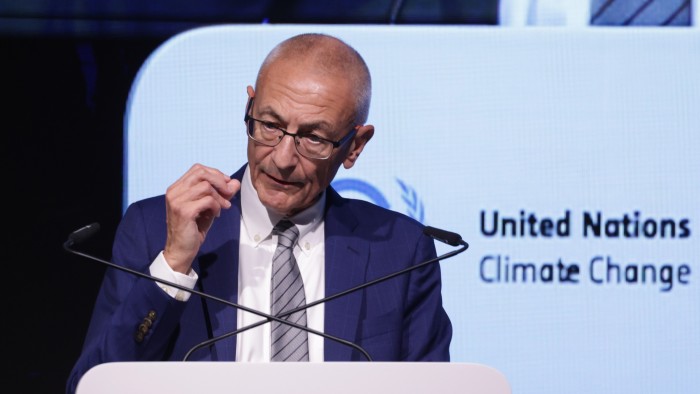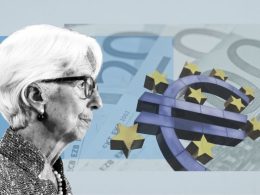Unlock the White House Watch newsletter for free
Your guide to what the 2024 US election means for Washington and the world
A deal to launch multibillion-dollar carbon markets governed by UN rules on emissions has been agreed at the COP29 climate summit, as countries attempt to show the fight against climate change will persist despite last week’s election of Donald Trump.
In the first symbolic negotiating breakthrough, the COP29 presidency pushed successfully on Monday for countries to adopt rules on a global market for trading instruments representing carbon emissions.
Carbon trading could help raise some of the cash that developing countries will need to adapt to the effects of climate change, while helping big polluters cut their emissions, in a win for COP29 host Azerbaijan ahead of tough negotiations on other types of finance.
It was a “rare bright spot of co-operation and progress emerging from COP29”, said Fitri Wulandri, an analyst at carbon data provider Veyt. But others said the speedy agreement had bypassed proper scrutiny. Isa Mulder, of the non-profit Carbon Market Watch said the summit had begun with a “backdoor deal”.
The announcement came as US President Joe Biden’s top climate adviser conceded action to limit global warming “may be put on the back burner” after Trump’s return to the White House, but sought to reassure the world that this could “slow, not stop” the shift away from fossil fuels.
John Podesta said “we should believe” Trump when he said he would “reverse much of [the] progress” the US had made on tackling climate change. “In January, we will inaugurate a president whose relationship to climate change is captured by the words ‘hoax’ and ‘fossil fuels’,” he said.
“Are we facing new headwinds? Absolutely. But we won’t revert back to the energy system of the 1950s. No way,” said Podesta.
His remarks follow Trump’s threats to again remove the US from the UN Paris agreement and overhaul Biden-era rules to curb emissions.
The US’s near-$370bn in green energy subsidies would also endure, Podesta said. “Many Republicans, especially governors, know all this activity is a good thing for their districts, states and for their economies.”
During the election campaign, Trump signalled support for unrestrained oil and gas expansion, with a promise to “drill, baby, drill”.
An exit from the Paris agreement would mean the world’s largest polluter historically would abandon its emissions reduction goals at the moment when scientists warn the world is on course for “catastrophic” warming of more than 3C above pre-industrial times.
The US would also be unlikely to boost financial aid to developing countries, a key concern for negotiators during talks in Baku over who should pay to help the world’s poorest countries tackle climate change.
Tina Stege, climate envoy for the Marshall Islands, which are under threat from sea rise, rejected the conclusion that the climate negotiations would be undermined by the US election. “The Paris agreement has survived one Trump presidency and it will survive another,” she said.
But she also criticised the absence of several world leaders at the summit, including EU President Ursula von der Leyen and French President Emmanuel Macron, saying it “signals a troubling lack of prioritisation”.
The deal on carbon trading will allow for UN oversight of the emissions reductions covered by the credits, which would represent one tonne of carbon dioxide removed or saved from the atmosphere. Further rules governing bilateral emission reduction trading deals between countries must still be discussed.
Even if Trump quits the Paris agreement, US companies could buy and sell carbon credits under a UN system to meet their climate targets and to contribute to climate finance goals.
Climate Capital

Where climate change meets business, markets and politics. Explore the FT’s coverage here.
Are you curious about the FT’s environmental sustainability commitments? Find out more about our science-based targets here
Source link









